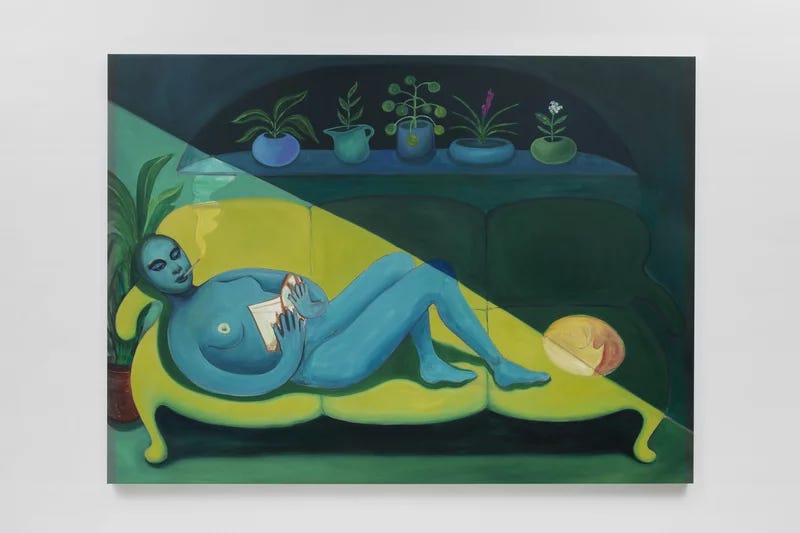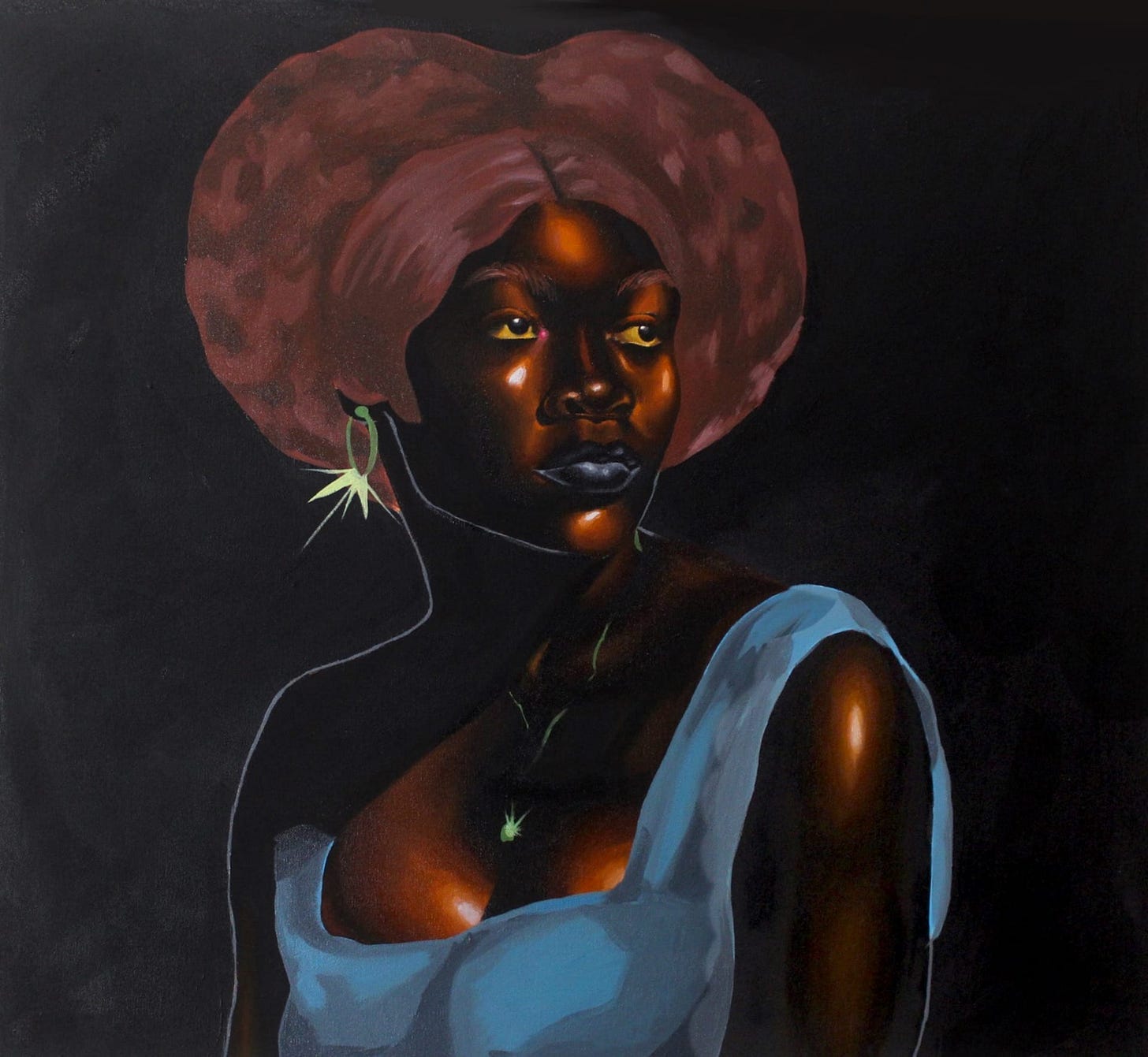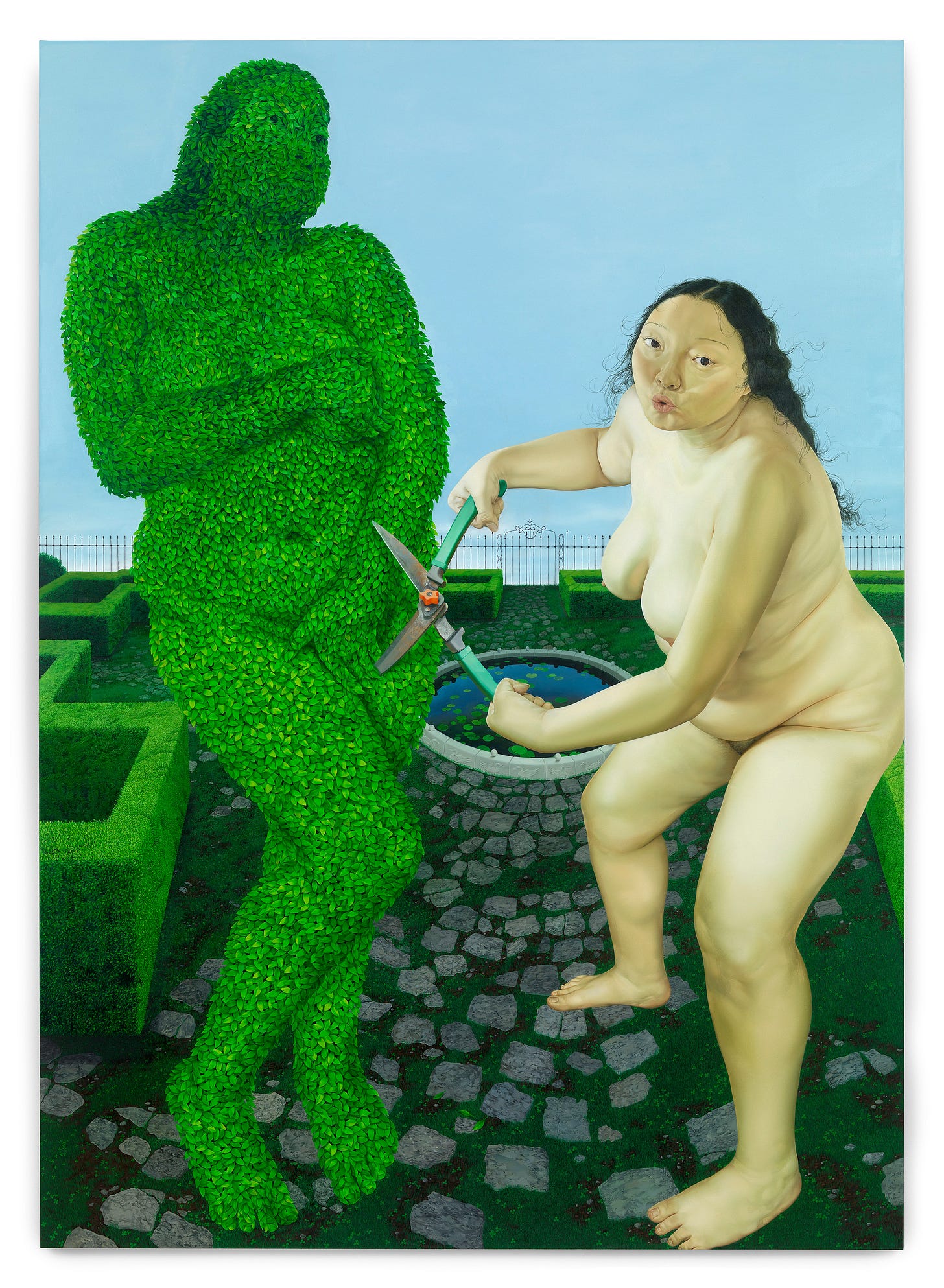This week we discuss knowing too much about strangers, nostalgic Radiohead tracks and five poc women visual artists depicting the modern young woman.
Diet Voyeurism
Being online constantly feels like peering into the window of a stranger’s front room. Voyeurism is commonplace in the digital world. Cut-and-dry voyeurism is perhaps too extreme, so maybe diet voyeurism?
Knowing the relationship arc of an influencer, their Starbucks order, why they no longer speak to their sister and other personal lore about said internet personality is all part of the digital voyeur game. In fact, amongst many facets of the internet, knowing these intimate details and lore can earn you brownie points from fellow diet voyeurs. Yet, I'm starting to feel weird about my level of diet voyeurism. I'm beginning to feel too invested. When does it start to feel strange to know so much about a stranger? Albeit a stranger whose job consists of fostering a substantial level of familiarity and personal connection. Familiarity can be a welcomed feeling. One that can help grow a global community and following. Relatability intertwines with this idea of familiarity. Producing content that feels "relatable" and "authentic" in this era can be recognised by an influencer with even the mildest degree of business acumen as a very lucrative strategy. Familiarity builds trust. Couple up trust with high purchase intent, and then you're on your way to dollar signs baby.
What is fascinating is the alarming growing prioritisation and trust for influencers, eerily mirroring a similar level of feeling typically reserved for real friends. This can lead to overfamiliarity. Many influencers, like Victoria Paris, have discussed the double-edged sword of sharing your life on the internet. From people overanalysing a two-dimensional photo to people trying to find your apartment building. All in an attempt to know more aspects of your life. Gnawing away at the line between public and private. It's a strange level of entitlement but can there be any justifications for it? Some argue well, if people share so much of their lives on the internet then it comes as no surprise that viewers want to know even more. This is a rather witless retort. How much of oneself can be disclosed to the entire world? Boundaries are the pinnacle of all equitable exchanges in society. This principle arguably does not alter when it comes to an influencer. Our interactions with influencers/celebrities demand strong boundaries to prevent parasitic relationships.
Not all digital voyeurs are social pariahs but there is a fine line. We should all take heed and monitor how much we are invested in the lives of strangers before things turn into an even messier version of The Voyeurs (2021).
Playlist of the week: Radiohead and even more Radiohead
Autumn means Radiohead, so here are some of my favourite tracks. Ranging from sad to sadder.
Spotlight: Depictions of young poc women in contemporary visual art
A woman of the modern day!
Depicting the lives of modern young poc women is no easy feat. So who better than those with that lived experience?
Saigon-based artist, Mai Ta’s art is primarily centered around her lived experiences as a Vietnamese woman. Prioritising the intricacies and complexities of this identity.
New York-based visual artist, Bambou Gili’s muses are typically young women with slightly uncanny features such as lime green skin or blue skin under a midnight hue often in solitude.
Texan-born painter, Chinaza Agbor displays the many facets of blackness. Often choosing to depict black people, particularly black women, in an ethereal-like manner.
American painter, Gordon’s work consists of stand-out self-portraits often dealing with issues like racism, sexism and homophobia.
Domican-American graphic designer and visual artist, Peña’s works are an exploration of ‘contemporary women in their personal spaces’ such as the hair salon to women hanging out with their friends at home.









